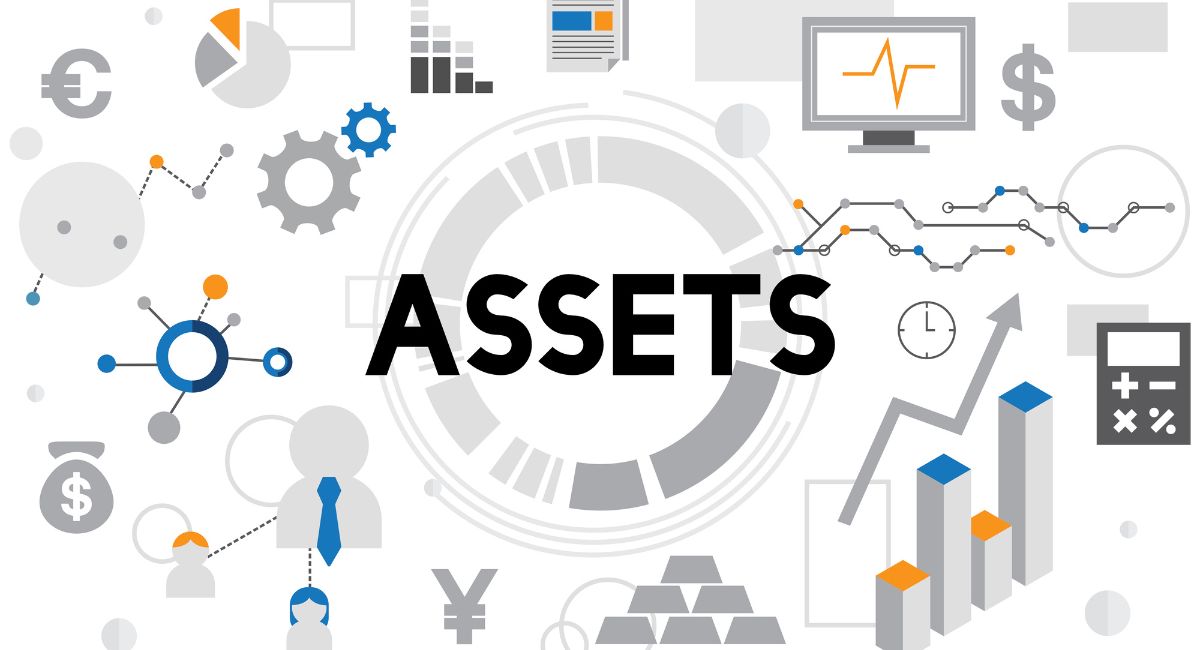A Comprehensive Guide To Choosing Your Digital Asset Brokerage Firm
In the dynamic landscape of digital assets, selecting the right brokerage firm is a pivotal decision that can significantly impact your investment journey. The plethora of options, varying features, and evolving regulations make the process both exciting and challenging. This comprehensive guide aims to navigate the complexities, empowering you with the knowledge to make informed decisions when choosing your digital asset brokerage firm.
Define Your Investment Goals and Preferences:

Investing in digital assets demands a thoughtful and strategic approach, starting with a clear understanding of your investment goals and preferences. Choosing the right brokerage firm hinges on aligning your aspirations with the services offered. Here’s a detailed exploration of key considerations:
1. Investment Objectives:
Clearly Define Your Investment Objectives: Before venturing into the world of digital assets, articulate your investment goals with precision. Are you in pursuit of long-term growth, looking to diversify your portfolio, or aiming for short-term gains? Each goal requires a distinct investment strategy, and various brokerage firms cater to these diverse approaches.
- Long-Term Growth: If your primary goal is long-term growth, consider brokerage firms that offer investment products conducive to a buy-and-hold strategy. Look for platforms that provide access to a wide range of established cryptocurrencies with strong growth potential.
- Diversification: Diversifying your portfolio is a common strategy to spread risk. Some brokerage firms specialize in offering a broad array of digital assets, allowing you to create a diversified portfolio easily.
- Short-Term Gains: For those inclined towards short-term gains, platforms with robust trading features, such as margin trading or futures contracts, may be more suitable. These features cater to a more active trading style.
2. Asset Preferences:
Identify Your Digital Asset Preferences: Digital assets come in various forms, from well-established cryptocurrencies like Bitcoin and Ethereum to newer tokens and altcoins. Identifying the specific digital assets you intend to trade is crucial in selecting a brokerage firm that aligns with your preferences.
- Diversity of Offerings: Some platforms pride themselves on offering a wide spectrum of digital assets. If you have a broad interest in different cryptocurrencies, consider platforms that provide extensive options for trading.
- Specialization: Conversely, certain brokerage firms focus on specific tokens or niche markets. If you have a particular interest or belief in the potential of certain assets, opt for a platform that specializes in those areas.
- ICO and New Token Access: If you’re interested in investing in new projects or Initial Coin Offerings (ICOs), check whether the platform supports access to these opportunities. Some investors seek early entry into promising projects.
3. Risk Tolerance:
Assess Your Risk Tolerance Level: Understanding your risk tolerance is paramount in making informed investment decisions. Digital asset markets can be highly volatile, and different brokerage firms cater to varying levels of risk tolerance.
- Advanced Trading Features: Traders with higher risk tolerance and experience may be inclined towards platforms that offer advanced trading features. These features include margin trading, options, and futures contracts, allowing for more sophisticated trading strategies.
- User-Friendly Interface: Beginners or those with a lower risk tolerance may prefer platforms with user-friendly interfaces. Look for brokerage firms that prioritize simplicity, ease of use, and educational resources to help navigate the complexities of digital asset trading.
- Risk Management Tools: Regardless of your risk tolerance, consider platforms that provide risk management tools. Features like stop-loss orders can help mitigate potential losses, adding an extra layer of security to your investments.
Security and Regulation in digital asset brokerage firm:
Ensuring the security and regulatory compliance of a digital asset brokerage firm is paramount in protecting both your investments and personal information. This section delves into the key considerations related to security and regulation, providing a comprehensive guide to making informed choices.
1. Regulatory Compliance:
Prioritize Platforms with Stringent Regulatory Adherence: Regulatory compliance is the bedrock of a secure and transparent trading environment. Prioritize platforms that adhere to regulatory standards in the jurisdictions they operate. Regulatory compliance not only safeguards your investments but also fosters trust and legitimacy in the broader financial landscape.
- Global and Local Compliance: Assess whether the platform complies with both global and local regulatory requirements. This is crucial as digital asset regulations vary significantly from one jurisdiction to another.
- Licenses and Certifications: Look for platforms that hold relevant licenses and certifications. Regulatory bodies often issue licenses to platforms that meet specific standards, ensuring that they operate within legal frameworks.
- Transparency in Operations: Choose platforms that demonstrate transparency in their operations. Transparent reporting and communication about compliance measures contribute to a more secure trading environment.
2. Security Measures:
Evaluate Robust Security Protocols: The digital nature of cryptocurrencies requires heightened security measures. Evaluate the security protocols implemented by the brokerage firm to protect your funds and sensitive information.
- Two-Factor Authentication (2FA): Ensure that the platform supports two-factor authentication. 2FA adds an additional layer of security by requiring a secondary verification step, typically through a mobile app or authentication device.
- Cold Storage for Assets: Verify if the platform employs cold storage solutions for digital assets. Cold storage, which keeps private keys offline, is a more secure method of safeguarding funds against online threats like hacking attempts.
- Regular Security Audits: Choose platforms that conduct regular security audits. Periodic assessments of security protocols ensure that vulnerabilities are identified and addressed promptly, minimizing the risk of potential breaches.
3. Insurance Coverage:
Explore Additional Protection Through Insurance: In the ever-evolving landscape of digital assets, the potential for security breaches exists. Explore whether the platform offers insurance coverage for digital assets, providing an additional layer of protection in case of unforeseen events.
- Security Breach Contingency: In the event of a security breach, insurance coverage acts as a contingency plan. It can help recover lost funds or compensate for damages resulting from unauthorized access or cyberattacks.
- Coverage Scope: Understand the scope of the insurance coverage. Some policies may cover losses due to hacking or internal fraud, while others may have broader coverage encompassing various types of security incidents.
- Insurance Provider Reputation: Assess the reputation of the insurance provider. A well-established and reputable insurance provider instills confidence in the reliability of the coverage offered by the platform.
4. Compliance with Anti-Money Laundering (AML) and Know Your Customer (KYC) Regulations:
Ensure Adherence to AML and KYC Procedures: To prevent illicit activities and maintain a secure trading environment, ensure that the platform has robust Anti-Money Laundering (AML) and Know Your Customer (KYC) procedures in place.
- Identity Verification: Check if the platform implements stringent identity verification processes. KYC procedures typically involve users providing identification documents to verify their identity.
- Transaction Monitoring: Platforms should have systems in place for monitoring transactions for suspicious activities. Compliance with AML regulations involves reporting and addressing any unusual or potentially illegal transactions.
- Regular Updates to Compliance Policies: The regulatory landscape is dynamic, and AML and KYC regulations may evolve. Choose platforms that stay abreast of regulatory changes and update their compliance policies accordingly.
5. Data Privacy and Encryption:
Prioritize Platforms with Robust Data Privacy Measures: Protecting your personal information is integral to a secure trading experience. Prioritize platforms that prioritize data privacy and employ robust encryption methods.
- End-to-End Encryption: Check if the platform uses end-to-end encryption for communication between users and the platform. This encryption method ensures that data remains confidential and secure during transmission.
- Data Storage Practices: Understand how the platform stores user data. Platforms should employ secure data storage practices, including encryption of stored data to prevent unauthorized access.
- Privacy Policies: Review the platform’s privacy policies. Clear and comprehensive privacy policies outline how user data is collected, processed, and protected, providing transparency about the platform’s commitment to data privacy.
Also, read – Answering All The Questions Related To Web3 Wallets And Managing Digital Assets Through Them
User Interface and Experience:
1. Intuitive Design: Consider the platform’s user interface. An intuitive design facilitates a seamless trading experience, especially for beginners. Look for platforms with clear navigation and user-friendly features.
2. Trading Tools: Assess the availability of trading tools. Advanced traders may require features like technical analysis charts, order book depth, and customizable dashboards. Choose a platform that provides the tools you need.
3. Mobile Accessibility: In the era of mobile connectivity, ensure that the platform offers a robust mobile app. Mobile accessibility allows you to manage your investments on the go and stay informed about market developments.
Digital asset brokerage firm, Nonco, has raised over $10 million in seed funding, according to a new statement from the company.
“The leading brokerage firm for digital assets”“Our aim is to become the leading brokerage firm for digital assets, and we intend to achieve this by…
— şeyma gamze (@xxgamzecixx) December 10, 2023
Fees and Pricing Structure:

1. Fee Transparency: Scrutinize the fee structure of the brokerage firm. Look for transparent fee schedules that clearly outline trading fees, withdrawal fees, and any other charges. Hidden fees can significantly impact your overall returns.
2. Competitive Pricing: Compare the pricing of different platforms. Some brokerage firms offer competitive fee structures, loyalty programs, or reduced fees for high-volume traders. Choose a platform that aligns with your budget and trading frequency.
3. Payment Methods: Consider the available payment methods. Ensure that the platform supports the payment options you prefer, whether it’s bank transfers, credit cards, or cryptocurrencies.
Customer Support:
1. Responsiveness: Evaluate the responsiveness of customer support. In times of technical issues or urgent inquiries, prompt customer support is crucial. Look for platforms that offer multiple channels of support, such as live chat, email, or phone support.
2. Educational Resources: Assess the availability of educational resources. A brokerage firm that provides educational materials, tutorials, and customer support for queries enhances your overall trading experience, especially if you are a beginner.
3. Reputation and Reviews: Research the reputation of the brokerage firm. Online reviews, testimonials, and feedback from other users can provide valuable insights into the quality of customer support and the overall user experience.
Liquidity and Order Execution:
1. Liquidity Providers: Understand the liquidity providers associated with the platform. High liquidity ensures that you can execute trades efficiently without significant price slippage, especially during volatile market conditions.
2. Order Types: Consider the variety of order types supported by the platform. Whether you need market orders, limit orders, or advanced order types, choose a platform that offers the flexibility you require for your trading strategy.
3. Execution Speed: Evaluate the platform’s order execution speed. In fast-paced markets, a delay in order execution can lead to missed opportunities. Opt for a platform with reliable and quick order execution.
Additional Features and Services:
1. Staking and Yield Farming: If you are interested in staking or yield farming, check if the platform supports these features. Some brokerage firms provide additional services beyond traditional trading, allowing you to earn passive income.
2. Integration with External Wallets: Assess whether the platform allows integration with external wallets. Some traders prefer to store their assets in hardware wallets for enhanced security. Compatibility with external wallets provides flexibility in managing your digital assets.
3. Platform Reliability: Consider the overall reliability of the platform. Platforms with a history of uptime, minimal downtime, and effective crisis management protocols offer a more reliable trading environment.
Future Development and Innovation:
1. Roadmap and Updates: Research the platform’s future development plans and roadmap. A brokerage firm that actively invests in technology, innovation, and new features demonstrates a commitment to staying ahead in the ever-evolving cryptocurrency space.
2. Ecosystem Partnerships: Evaluate any ecosystem partnerships or collaborations the platform has. Partnerships can enhance the platform’s capabilities and may lead to the introduction of new features and services.
3. Community Engagement: Consider the level of community engagement. Platforms that actively engage with their user communities, seek feedback, and implement user-suggested features often provide a more inclusive and user-centric experience.
Conclusion: Making an Informed Decision:
Choosing the right digital asset brokerage firm requires careful consideration of your individual preferences, goals, and the features offered by different platforms. By defining your investment objectives, prioritizing security, considering user experience, and assessing additional features, you can make an informed decision that aligns with your unique needs. Stay informed about market developments, regulatory changes, and updates from your chosen brokerage firm to ensure a seamless and secure trading experience in the digital asset space.
Stay informed with daily updates from Blockchain Magazine on Google News. Click here to follow us and mark as favorite: [Blockchain Magazine on Google News].
Get Blockchain Insights In Inbox
Stay ahead of the curve with expert analysis and market updates.
latest from tech
Disclaimer: Any post shared by a third-party agency are sponsored and Blockchain Magazine has no views on any such posts. The views and opinions expressed in this post are those of the clients and do not necessarily reflect the official policy or position of Blockchain Magazine. The information provided in this post is for informational purposes only and should not be considered as financial, investment, or professional advice. Blockchain Magazine does not endorse or promote any specific products, services, or companies mentioned in this posts. Readers are encouraged to conduct their own research and consult with a qualified professional before making any financial decisions.

 Bitcoin
Bitcoin  Ethereum
Ethereum  Tether
Tether  XRP
XRP  Solana
Solana  Dogecoin
Dogecoin  USDC
USDC  Lido Staked Ether
Lido Staked Ether  Cardano
Cardano  TRON
TRON  Avalanche
Avalanche  Toncoin
Toncoin  Chainlink
Chainlink  Wrapped stETH
Wrapped stETH  Shiba Inu
Shiba Inu  Wrapped Bitcoin
Wrapped Bitcoin  Sui
Sui  Hedera
Hedera  Stellar
Stellar  Polkadot
Polkadot  WETH
WETH  LEO Token
LEO Token  Bitcoin Cash
Bitcoin Cash  Hyperliquid
Hyperliquid  Litecoin
Litecoin  Uniswap
Uniswap  Pepe
Pepe  Wrapped eETH
Wrapped eETH  NEAR Protocol
NEAR Protocol  Ethena USDe
Ethena USDe  USDS
USDS  Aave
Aave  Internet Computer
Internet Computer  Aptos
Aptos  Cronos
Cronos  POL (ex-MATIC)
POL (ex-MATIC)  Mantle
Mantle  Ethereum Classic
Ethereum Classic  Render
Render  Monero
Monero  WhiteBIT Coin
WhiteBIT Coin  Bittensor
Bittensor  Dai
Dai  MANTRA
MANTRA  Artificial Superintelligence Alliance
Artificial Superintelligence Alliance  Arbitrum
Arbitrum  Filecoin
Filecoin 




